Uruguay is a relatively small country on the South American coast between Brazil and Argentina.
It has a modern economy and a high standard of living but is still considered a developing nation.
It has beautiful beaches, a nice climate, and is not overly crowded.
The country is also said to be one of the most stable countries politically in Latin America.
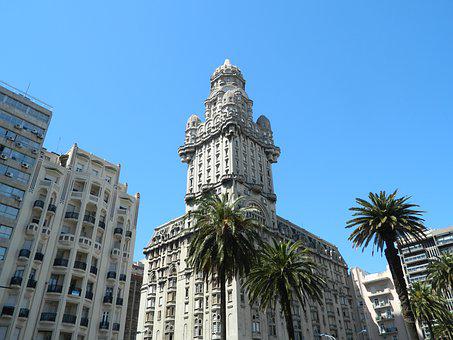
Contents
Pros of Living in Uruguay
1. The beaches
Uruguay has hundreds of miles of unspoiled white-sand beaches.
There are also great little beach towns that are not overly touristy.
The population of the country doubles in the summer with people from Argentina, Brazil, and other countries flocking to the beaches of Uruguay.
The area around Rocha, near Brazil, offers a lot of beaches that do not have many people, but they can be a challenge to get to.
Beaches are a major attraction for visitors to the country.
2. Small shops
You will not find big box stores, or super big supermarkets very often in Uruguay.
Instead, there are hundreds of small shops.
Small grocery stores, including those that specialize in meats, cleaning supplies, or produce, dot the landscape.
While all modern goods are available, the means of shopping will remind you of long-gone days in the United States.
As many as 65 percent of businesses are locally owned and operated.
3. Healthcare
The healthcare system is great and affordable.
There is completely free medicine for poor people but the care is basic.
Most people who move there get “mutualista” which is paying for private care that is not really insurance.
Interestingly, getting to see a specialist is relatively easy, but you may have to wait a few weeks to get a regular doctor’s appointment.
The healthcare is good and inexpensive, but you may have to wait to get it.
4. Transportation is good
Cities like Montevideo have great transportation, whether it be bus, train, subway, or car.
There is a bus system for getting around the country.
It is cheap and easy to use.
In the cities, walking everywhere is customary, and what you need is often close enough that this is not a problem.
You can easily live without a car in Uruguay.
5. Tolerant society
There is a lot of openness to different kinds of people.
You can feel free to be who you are and to speak your mind without recrimination.
People are friendly and open for the most part.
The term “vecino” means “neighbor” and it is used in a friendly way toward everyone.
6. Stable government
Uruguay is built on democratic principles.
It has one of the most stable governments in all of Latin America.
There is peace and not much turmoil.
People tend to trust the government and there is not a lot of scandal in that area.
It has one of the highest incomes per capita in the Americas, and extreme poverty is rare.
It estimates that 60 percent of its residents are middle class, the highest in Latin America.
7. Ferias
In the United States, these are called flea markets, but the ones in Uruguay may have more fresh fruit and vegetables.
These are open-air markets where anyone can sell anything they like.
They are usually held in the mornings on selected days of the week.
You can also get eggs, cheese, cleaning supplies, and many other needed items at a very low cost.
People also sell used items there as they do in flea markets in the U.S.
8. Grass-fed beef
Uruguay has almost as much meat consumption per capita as its neighbor, Argentina.
The beef in Uruguay is grass-fed though, and many people think that is a more healthy option.
Argentina exports a lot of its beef while Uruguay does not.
Still, people love meat in Uruguay, and you are bound to find a lot of good barbeque in all parts of the country.
9. Ease of admission
It is easy to get a visitor’s visa, and it is also easy to get permanent residency.
It is said to be one of the easiest countries in the world to immigrate to.
You will have to have a clean criminal record and proof of a monthly income.
If you have no issues there, you will not have much trouble getting permanent residency.
You may also wait until you are in the country to start the process.
If you are visiting for less than 90 days you do not even have to get a visa.
Cons of living in Uruguay
1. Not as welcoming as some countries
People are very friendly and cordial to visitors, but it seems to stop there in many cases.
It is easy to socialize and to get information and help from people on the street.
It is harder to make long-term friends if you are a visitor though.
They will be very nice to you, but will not feel compelled to invite you home or into their social circles.
2. Winter
The weather is relatively mild and there are four seasons.
Even so, there is a fairly harsh winter at times in Uruguay, which is unsettling for people not used to cold weather.
The capital of Montevideo can be very cold and stark during the winter, with a lot of wind and rain.
Even though it is cold, snow is rare in most of the country.
3. Not the cheapest
Part of the appeal of Latin America is the low cost of living.
Uruguay may still be cheaper than a big city in the United States, but it is one of the more expensive countries in South America as far as living expenses.
Housing is not all that expensive, but the energy to heat or cool your house will be expensive.
If you are coming from New York City or Los Angeles, you might not think it is expensive, but if you are coming from the Midwest, you will think it is expensive.
4. Urban jungle
The capital city of Montevideo is a huge city, and in recent years it has become a place of high-rise buildings.
Many historic buildings and neighborhoods have been torn down to make room for the high-rise urban jungle.
Montevideo is a modern city in every sense of the word, and it is, unfortunately, taking on that appearance as well, at the expense of its colorful historical buildings.
5. Lack of insulation
Houses are often not built well, and they don’t have insulation when they are built.
This means winters will be very cold, and the fuel to heat your inefficient home will be even more expensive than it should be.
First-time visitors may have a difficult time their first winter because of the lack of insulation.
The ocean, and the Rio De La Plata, a major river in Montevideo, keep the city very humid regardless of the time of year.
6. Customer service
People in shops or stores tend not to be overly helpful to customers.
If you do complain you are likely to get a defensive response instead of help.
It is hard to get a refund.
You will get a credit note instead, which can be frustrating.
It is odd that the country struggles with customer service when people are otherwise friendly and helpful.
7. Dogs
This could be positive, because dogs are very popular in Uruguay, and people love their dogs.
The downside is that they do not train their animals.
Dogs are allowed to bark as much as they want, and you will be thought strange if you complain about barking dogs.
People also do not clean up after their dogs.
8. Imported goods are expensive
Due to taxes, and the logistics of getting them to the country, anything imported will be expensive.
Cars, gas, furniture, electronics, and other foreign products will be much more pricey than they were in the United States or Europe.
9. Not very clean
The beaches of Montevideo in particular, are strewn with garbage, and often the streets are as well.
Trash piles up especially in winter as trash collectors are few and far between at times.
It is also bad at times in the countryside away from the big city.
Buildings in Montevideo have a lot of graffiti as well.
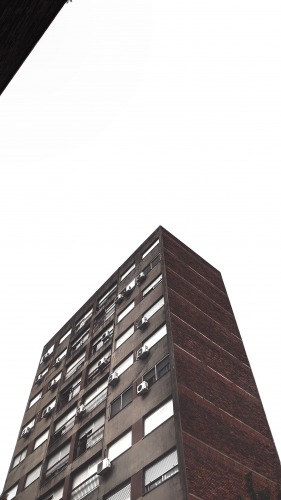
Pros and Cons of Living in Uruguay – Summary Table
| Pros of Living in Uruguay | Cons of Living in Uruguay |
|---|---|
| 1. The beaches | 1. Not as welcoming as some countries |
| 2. Small shops | 2. Winter |
| 3. Healthcare | 3. Not the cheapest |
| 4. Transportation is good | 4. Urban jungle |
| 5. Tolerant society | 5. Lack of insulation |
| 6. Stable government | 6. Customer service |
| 7. Ferias | 7. Dogs |
| 8. Grass-fed beef | 8. Imported goods are expensive |
| 9. Ease of admission | 9. Not very clean |
Uruguay Safety Overview
READ THE FULL REPORT: Uruguay Safety Review
Safety Index: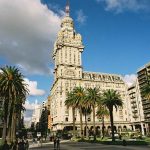
- OVERALL RISK: LOW
- TRANSPORT & TAXIS RISK: LOW
- PICKPOCKETS RISK: MEDIUM
- NATURAL DISASTERS RISK: MEDIUM
- MUGGING RISK: MEDIUM
- TERRORISM RISK: LOW
- SCAMS RISK: MEDIUM
- WOMEN TRAVELERS RISK: LOW
Frequently Asked Questions
How long can a visitor stay in Uruguay?
A 90-day Visitors permit is given to all visitors, and you may extend that an additional 90 days easily at any immigration office.
After six months you will have to leave and start over if you wish to return, or you can apply for permanent residency.
How do you get permanent residency?
It is easy but may take some time.
You may also get the permit from an Uruguayan embassy in your home country.
To get this status you must have a job offer or permit to work, own a piece of land, or have a bank account with a given amount of money deposited.
What is the average cost for a foreigner to live in Uruguay?
In most of the country, you can live well for $2,000 per month, including an apartment, food, bills, and some extra money.
Living in more upscale areas, or in a big city like Montevideo, may cost up to twice that amount.
It is still higher than most of Latin America, but lower than the United States or Europe.
How hard is it to buy land or a home in Uruguay?
It is very easy, and you may do so without being a citizen.
If you do buy a place, that will help you get permanent residency as well.
Prices vary a lot by location, but you can generally get a nice house for $100,000, and buying an apartment costs even less.
Some people moving to the country buy furnished apartments in advance.
How safe is Uruguay?
The Global Peace Index ranked Uruguay No. 1 in South America for peace and safety.
It is also ranked 35th in the world.
It has a record of stable democracy, and solid economic policies that makeup 60 percent of the publication’s middle class.
It has a very low poverty rate as well, which has an impact on the level of crime.
Large cities like Montevideo have their share of crime, but it is still low for the South American region.
Why is Uruguay said to be a progressive country?
It has legalized abortion, same-sex marriage, and recreational marijuana in recent years.
It also has free, or close to free, health care.
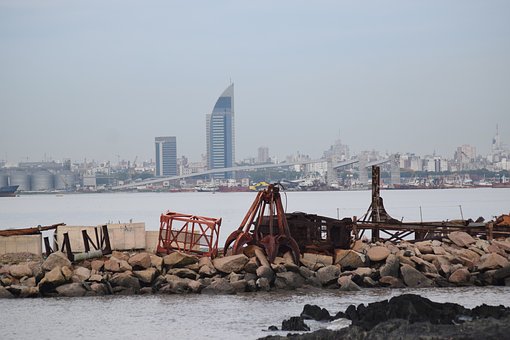
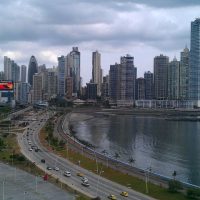

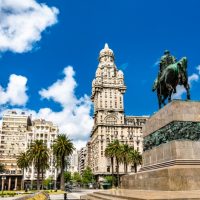








I would like to visit the country
Ron/Cat
We visited Uruguay about ten years ago and we really liked the country. The only drawback is it’s a long trip from the US or Canada. This article on the pros and cons is quite accurate in my experience.
Uruguay isn’t cheap, actually it is pricey compared to the neighboring countries, especially Argentina nowadays. Montevideo is close to a modern city, and if you like an air of decadence it may be your spot indeed.
The article does not talk about food, which is a part of our life indeed; well, if you feel comfortable eating meat every day of the year this is your place. If you aren’t this still may be your place as there are enough vegan options.
Society is tolerant and we may not be so prome to invite you home, but once we do, it’s your home as well as ours.
This is a good place for people to retire or for digital nomads to work remotely, not cheap but safe enough, somehow far away but close and well connected to big cities (Buenos Aires and Sao Paulo).
Give us a shot and judge yourself, you´ve got nothing to loose.
Cheers!
Really helpful
Wow so awesome. Can’t wait to come to Uruguay. I am from South Africa and things that are cons are our everyday lives
I’ve been searching for a safe, tax haven to visit and potentially move to. I believe I’ve found my country. I’ll be visiting later this summer.
I don’t think there are tax breaks in Uruguay. Best wishes.
I am sorry to day this is not a very accurate desciption of the country.
Most supermarkets are big chain stores owned now by foreign corportations, historical building are being demolished but they are in no way colorful (they are beige or gray), there is quite a signifcant amount of extreme poverty living in shanty towns or homeless, also there are no passengers trains or subways either.
Proper house are built well, made out of bricks, the problem may be the windows, which is easily fiaxble.